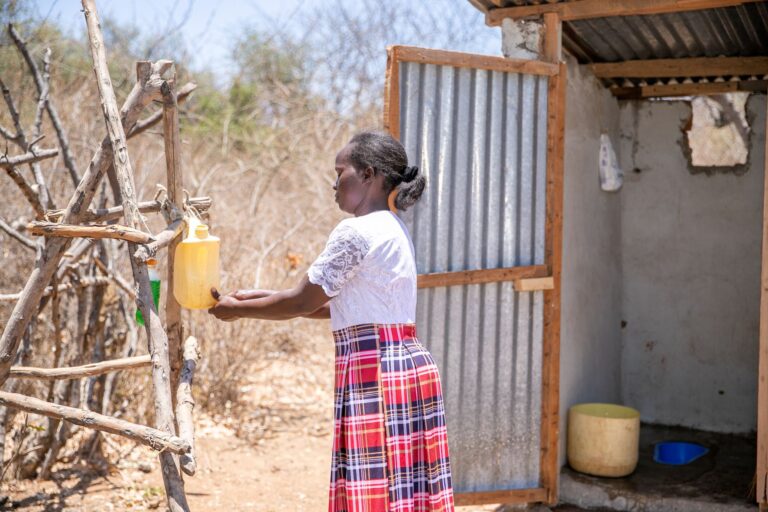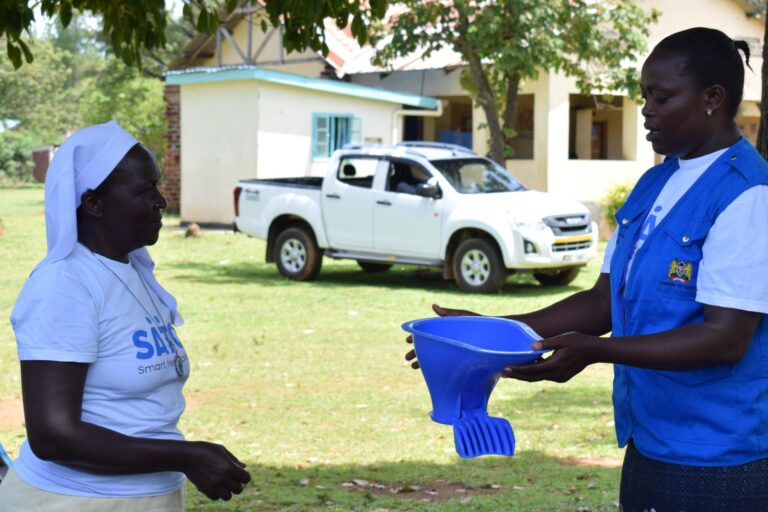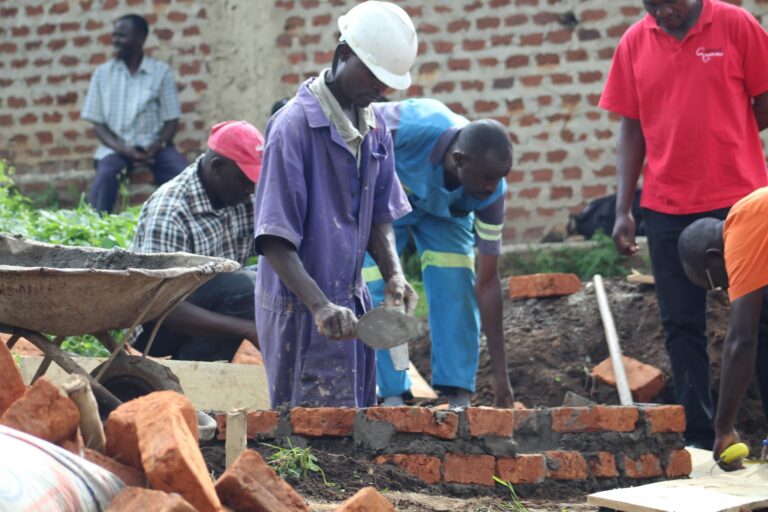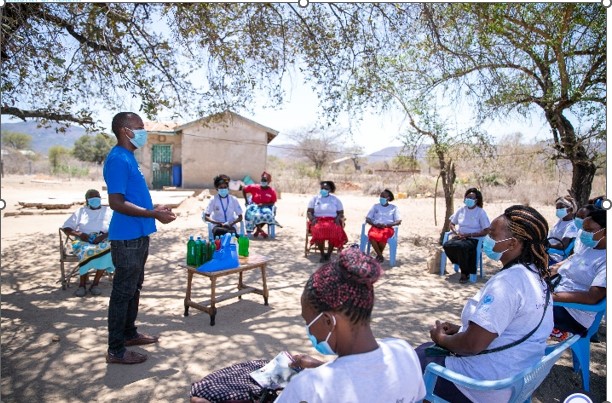A Toilet Changed Ajuma’s Family
Can you imagine having to walk over one kilometre to relieve yourself every time you needed to use the toilet? This was the reality for 29-year old Anna Ajuma.
Before constructing a latrine in their homestead, Mary and her three children used to defecate in the bushes, open fields or near a river. During rainy seasons, Mary would go to her father-in-law’s home to use his latrine. Sometimes when she had visitors, her only option was to take them to her father –in-laws to use his facility.“We used to relieve ourselves in the bushes, and outside our house,” recalled Anna. When it was time to bathe, Anna would to go to a nearby stream or river after sunset. When the rains came, the water would flow through her home, bringing all manner of waste with it.
Anna learned of the FINISH latrine model through a Community Health Volunteer (CHV) Mary Kakita who passionately persuaded her to construct a toilet and a bathroom. Mary got to know of Anna’s situation while mapping homes that did not have toilets.
According to Mary, Anna’s family often suffered from diarrhoea and typhoid and her children often missed school. “Their health was bad as they did not practice safe sanitation, her family often had diarrhoea which was directly related to the open defecation practice.”
Anna is now a proud owner of a latrine and a bathroom. She cannot contain her excitement. She now knows that open defecation increases the risk of spreading diseases.
When Anna found that the cost of a toilet was Kshs 35,000, she sought for a loan from her women’s group. The latrines are constructed by artisan trained by FINISH-INK using locally made interlocking bricks commonly known as makiga. The bricks are easy to make using locally available materials making them affordable for local households.
“When Mary visited my home, she educated me on the importance of having a toilet and a hand washing facility. She also proposed the idea of taking a loan to construct the latrine, “she says.
Anna knows very well what this new toilet means to her. “This toilet has given me a sense of pride as a woman. It has provided privacy and my family no longer develops diarrheal diseases since we now follow the best hygiene practices such as washing hands with soap after visiting the toilet, “she says.
What was even more embarrassing and shameful for her was the lack of privacy when sharing a toilet with her father-in-law. “It was embarrassing to rub shoulders with my father-in-law at his toilet. It is not a good act in my community. I no longer share the latrine with my father law, I have my own. We are happy and my family is healthy, people now respect me,” she confirms.
Anna is now aware that poor hygiene impacts negatively on the disease burden. With proper sanitation, her children will attain proper education and avoid preventable diseases. The FINISH latrine has given Anna and other villagers the benefits of health, safety and dignity.
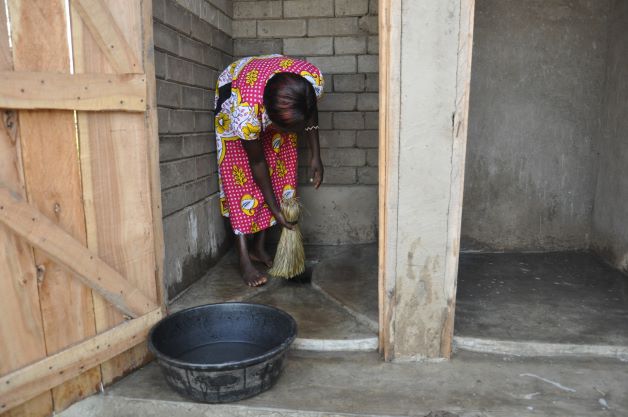
Ajuma Cleaning her Latrine
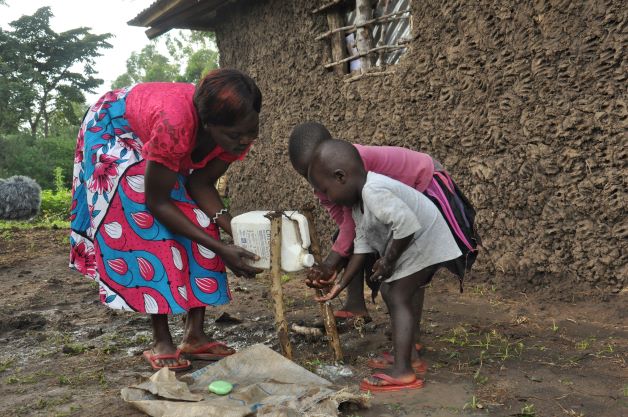
Ajuma teaches her children how to wash their hands

